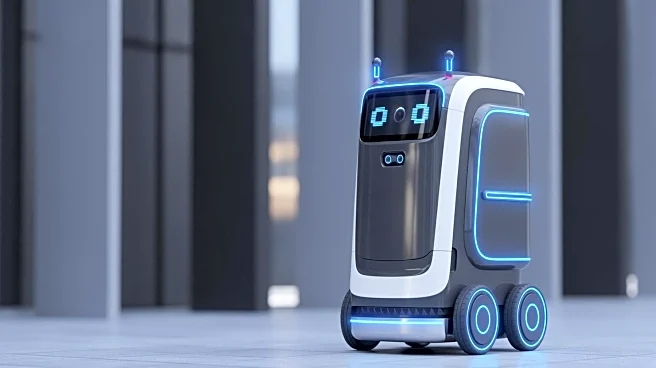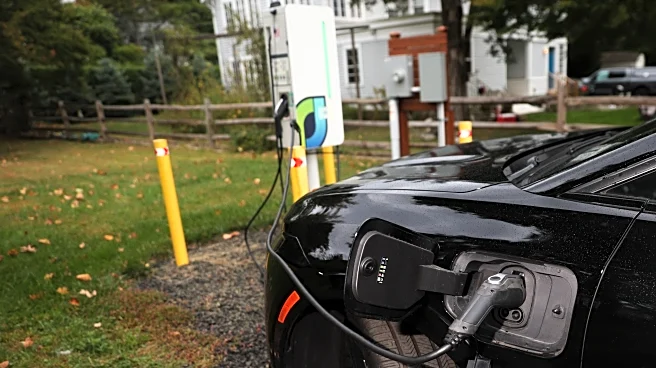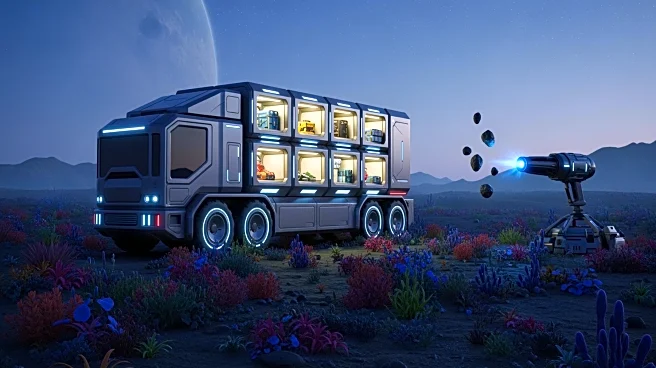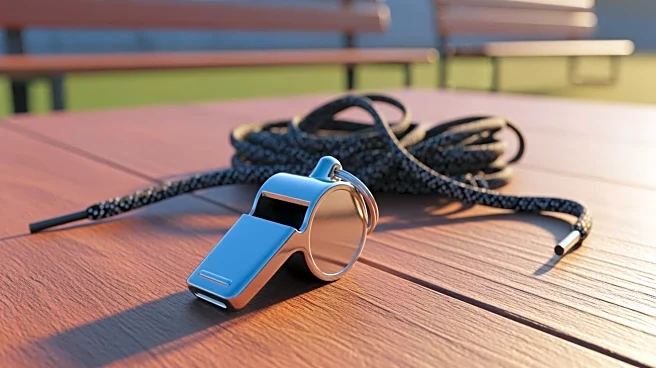What's Happening?
Serve Robotics Inc., a company specializing in sidewalk delivery robots, has announced plans to sell 6,250,000 shares of common stock, potentially raising up to $100 million. The funds are intended for general corporate purposes, including working capital.
Serve Robotics, which was spun off from Uber in 2021, has already completed over 100,000 deliveries for partners like Uber Eats and 7-Eleven. The company has scalable multi-year contracts, including a significant agreement to deploy up to 2,000 delivery robots on the Uber Eats platform across various U.S. markets. Recently, Serve Robotics has also entered a strategic partnership with DoorDash to expand its robot delivery services across the U.S.
Why It's Important?
The expansion of Serve Robotics' delivery fleet signifies a growing trend in the use of autonomous technology in the logistics and delivery sectors. This move could enhance efficiency and reduce delivery times for businesses and consumers, potentially transforming the last-mile delivery landscape. The partnership with major platforms like Uber Eats and DoorDash highlights the increasing reliance on robotic solutions to meet consumer demand. This development could lead to significant cost savings for companies and provide a competitive edge in the rapidly evolving delivery market. Additionally, the use of robots could reduce carbon emissions associated with traditional delivery methods, aligning with broader environmental goals.
What's Next?
Serve Robotics aims to reach its goal of deploying 2,000 AI-powered delivery robots by the end of the year. The company is also enhancing its technology stack through strategic acquisitions, such as the recent purchase of assets from Phantom Auto Inc. and Vayu Robotics. These acquisitions are expected to bolster Serve's capabilities in video streaming, connectivity, and AI model deployment. As Serve Robotics continues to expand its operations, it may face increased competition from other companies in the autonomous delivery space, such as Starship Technologies and Coco Robotics, which are also scaling their operations and forming strategic partnerships.
Beyond the Headlines
The rise of delivery robots raises questions about the future of employment in the delivery sector, as automation could potentially displace human workers. However, it also presents opportunities for new job creation in robot maintenance and operations. Additionally, the integration of robots into urban environments poses challenges related to regulation, safety, and public acceptance. As cities adapt to this new technology, there will be a need for updated infrastructure and policies to ensure the safe and efficient operation of delivery robots.
















